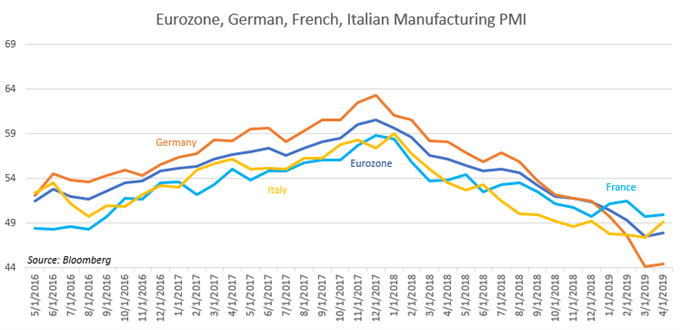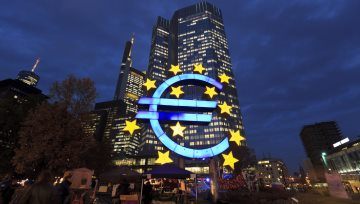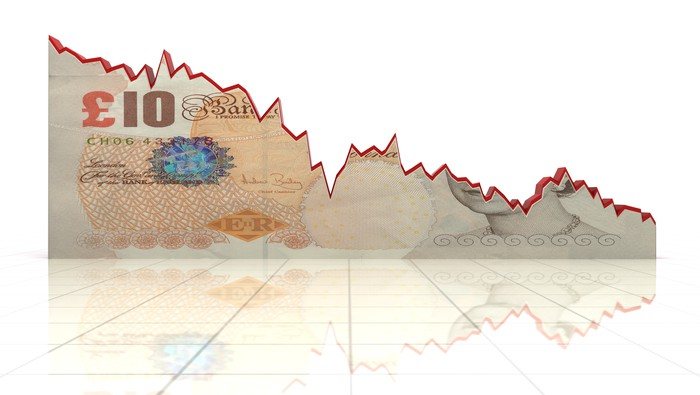TALKING POINTS – EU PARLIAMENT ELECTION, EUROPEAN POLITICS, EURO, SWEDEN ELECTION
- Sweden’s Riksdag suffered longest political congestion in its history last year
- Greater representation of eurosceptics in Swedish parliament led to gridlock
- Was this a foreshadowing of what is to come in the upcoming EP elections?
See our free guide to learn how to use economic news in your trading strategy !
Following the Swedish general election in September 2018, the Riksdag subsequently became entangled in the longest political gridlock in the country’s history. The over 100-day debacle was only finally resolved when the center-left bloc compromised on some of its principles and agreed to strike a deal with center-right parties in parliament. But why does this matter for the European parliamentary (EP) elections and the Euro?
WHAT HAPPENED IN SWEDEN’S PARLIAMENT?
The origin of Sweden’s constitutional crisis was the result of a larger representation of eurosceptics in the Riksdag following the local general election. While the Sweden Democrats did not garner a sufficient number of votes for a sweeping majority, they had enough seats that made ignoring them impossible. Meanwhile, the Riksdag’s two largest parties and political blocs were at a stalemate and refused to work together.
The Sweden Democrats were effectively made the kingmakers because their decision on who to support would grant one of the political blocs in parliament the upper hand via a majority. However, neither mainstream parties were interested in collaborating with the eurosceptics because of their origins in neo-Nazism. Lawmakers feared that working with such a group could have eroded their political credibility.
As parties dug their heels in, the consequences of the gridlock grew. Before a formal government and cabinet was finally formed, the situation was so uncertain and unpredictable in bordered on the absurd. Sweden’s country had a caretaker government that was being headed by an ousted Prime Minister who oversaw the implementation of a center-right budget.
Initially, policymakers paid no attention to the matter because they viewed Sweden as a politically-stable state. However, what the crisis revealed was the alarming revelation that Nordic states – which have historically been less politically volatile than their Eurozone core counterparts e.g. France and Italy – are not immune to populism and euroscepticism. This might be the writing on the wall for the potentially greater-than-expected political volatility at the heart of Europe in this month’s European parliamentary elections.
EURO AT RISK FROM EUROPEAN PARLIAMENT ELECTIONS
The EP elections will take place this month between May 23-26 where eurosceptic parties are projected to make significant gains. Using Sweden as a political barometer, a similar gridlock in Stockholm could be in the cards for the EU, except the consequences will be over a wider area with deeper economic impacts. A fractured parliament with ideologically dissimilar parties will make passing resolutions difficult.
Disagreements on the EU’s external trade policy and internal budgets could lead to institutional gridlocks and potentially hinder the implementation of economically-stimulative policies. At a time when regional weakness is prevailing with interest rates in negative territory, the last thing the EU needs is more political congestion. Brexit participating in the EP elections is itself already putting policymakers in uncharted territory.

Want to learn more about the European parliamentary elections? Stay tuned for my comprehensive guide and outlook. You may follow me on Twitter @ZabelinDimitri to receive timely updates on European politics.
NORDIC TRADING RESOURCES
- Join a free Q&A webinar and have your trading questions answered
- Just getting started? See our beginners’ guide for FX traders
- Having trouble with your strategy? Here’s the #1 mistake that traders make
--- Written by Dimitri Zabelin, Jr Currency Analyst for DailyFX.com
To contact Dimitri, use the comments section below or @ZabelinDimitri on Twitter







